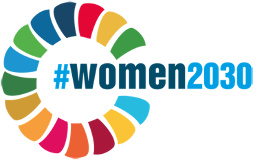Policy on Preventing and Addressing Sexual Harassment and Abuse
As a feminist organisation WECF International is committed to providing a safe environment for all its employees free from discrimination on any ground and from harassment at work including sexual harassment, and to work with staff and Women2030 network partners towards a world free of sexual and gender-based violence (SGBV).
#MeToo showed that sexual violence is a structural issue, and is very much alive due to the power dynamics shaped by society’s constructed gender roles, valuing men over women and non-binary persons. But it also showed that this is not tolerated anymore, that we need a paradigm shift.
WECF International has a zero tolerance policy for any form of sexual harassment in the workplace, treats all incidents seriously and promptly investigates all allegations of sexual abuse and harassment. Any person found to have sexually harassed another will face disciplinary action, up to and including dismissal from employment.
All complaints of sexual harassment will be taken seriously and treated with respect and in confidence. We will not tolerate any negative treatment in the workplace of persons making such a complaint. We will always take measures to protect the aggrieved person, and in all steps of persecution of the alleged perpetrator ensure the consent of the reporting person. This includes external and formal reporting on extreme and criminal conducts such as rape and violence. We stand side by side with the reporting person and give guidance to relevant institutions whenever needed.
WECF International endeavors to engage, inform and build the capacity of staff and network partners to understand the underlying structural causes and power-dynamics of all forms of discrimination, sexual and gender based violence (SGBV), and to promote the responsibility of all staff and partners to work towards elimination of sexual harassment, abuse and exploitation in our organizations, communities and societies.
Procedure
Contact our internal or external focal points about any issues related to sexual harassment or abuse, in English or the language of the country where the WECF office is based, see contact information below:
WECF International & Netherlands
Internal focal point: Kirsten Meijer
External focal point: Kitty Bentvelsen
WECF Germany
Internal focal point: Anke Stock
External focal point: Sabine Bock
WECF France
Internal focal point: Veronique Moreira
External focal point: Anne Barre
WECF Georgia
Internal focal point: Ida Bakhturidze
External focal point: Anna Arganashvili
Anyone making an official complaint should therefore be met with utter most respect, and should always be treated as telling the truth. Sexual harassment can involve one or more incidents and actions constituting harassment may be physical, verbal and non-verbal. Examples of conduct or behavior which constitute sexual harassment include, but are not limited to:
Physical conduct
- Unwelcome physical contact including patting, pinching, stroking, kissing, hugging, fondling, or inappropriate touching
- Physical violence, including sexual assault and rape
- The use of job-related threats or rewards to solicit sexual favors, such as threatening to have someone fired if they tell anyone about the sexual harassment etc.
Verbal conduct
- Comments on a worker’s appearance, age, private life, etc. For example to comment on someone’s appearance when they are in the middle of a presentation.
- Sexual comments, stories and jokes
- Sexual advances
- Repeated and unwanted social invitations for dates or physical intimacy
- Insults based on the assumed gender of the worker
- Condescending or paternalistic remarks
- Sending sexually explicit messages (by phone or by email) without the consent of the receiver
Non-verbal conduct
- Display of sexually explicit or suggestive material
- Sexually-suggestive gestures
- Whistling
- Leering
- Consent
Sexual consent means “unless it’s a yes, it’s a no!” Any sexual conduct that does not have explicit consent from the persons participating is rape. You can withdraw your consent at any time during the sexual intercourse.
Who are the perpetrators?
WECF international recognizes that a perpetrator can be anyone, regardless of their gender, and the sexual harassment and/or violence can be targeted towards any gender. What matters is that the sexual conduct is unwanted and unwelcome by the person against whom the conduct is directed. WECF International recognizes that sexual harassment is a manifestation of power relationships and often occurs within unequal relationships in the workplace, for example between manager or supervisor and employee.
Anyone, including employees of WECF International, Women2030 partners, contractors or visitors who sexually harasses another during work will be reprimanded in accordance with this internal policy. All sexual harassment is prohibited whether it takes place within WECF International premises or outside, including at social events, trips, training sessions or conferences sponsored and/or hosted by WECF International.

